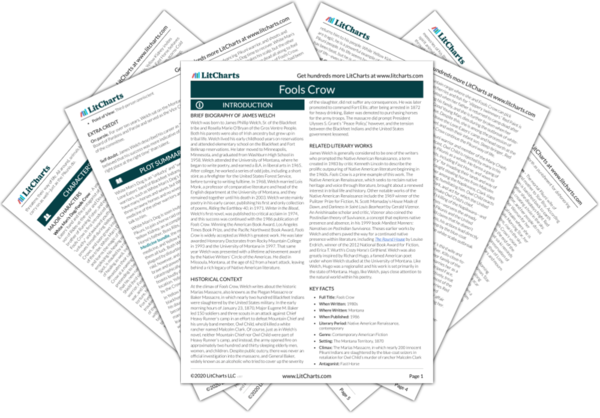Through Fast Horse’s banishment, Welch argues the importance of native community and the collective good of the tribe. Three Bears and Rides-at-the-door appreciate how difficult it will be on Boss Ribs to banish his own son, but his personal desires must come second to the good to the tribe. Fast Horse’s presence poses a threat to tribal life, and as such, he must be eliminated.
